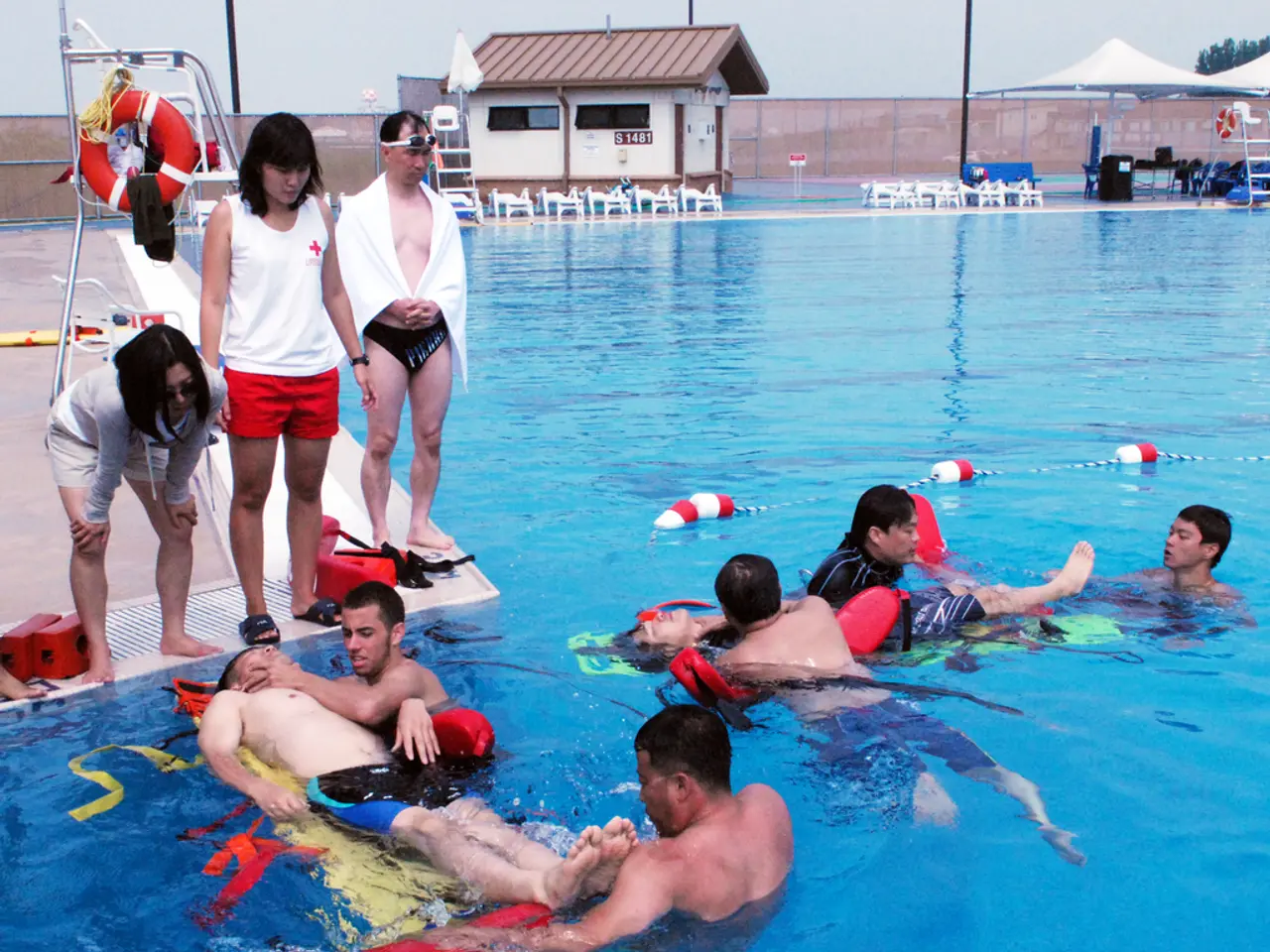Public swimming pool in Bavaria faces potential shutdown due to labor shortage
In Bavaria, Germany, mayors are taking innovative steps to address staff shortages at public swimming pools. The scarcity of lifeguards and swimming instructors has become a common issue, with potential pool closures looming due to the lack of personnel.
According to Ingbert Liebing, CEO of the Association of Municipal Enterprises, Germany is experiencing a high demand for pools and swimming instructors but a limited supply. This shortage has led to staff shortages in several pools, including the Jura Mare swimming pool in Parsberg, Bavaria, where restricted opening hours were a possibility in August.
To alleviate the situation, mayors are employing flexible and creative local measures. For instance, they are hiring temporary or part-time workers, involving volunteers, and even cooperating regionally to share resources and personnel.
Mayor Josef Bauer and business manager Stefan Schmidmeier have taken an active role in this effort. They have volunteered their services as lifeguards to prevent the closure of individual pools, and have even completed a lifeguard training course to support the team.
Bauer and Schmidmeier aim to demonstrate that with average fitness and willingness to engage, this important task can be taken on by anyone. They encourage others to step up and help, emphasising that even with staff shortages, it's important for everyone to play a part.
The city is still accepting applications for lifeguard positions, with career changers welcome. The lifeguard candidates must swim 20 meters freestyle, dive to a depth of 3-5 meters, and retrieve a 5kg diving ring. Participants in the lifeguard training learn to tow a rescued person 25 meters to shore and perform CPR.
Demographic change could exacerbate the staff shortage in swimming pools. To combat this, mayors often recruit local youth or retirees for seasonal or part-time lifeguard or pool maintenance roles. They also use public funding or subsidies to improve working conditions or offer incentives. Coordinating training programs to increase the number of qualified lifeguards is another common approach.
For detailed, up-to-date examples or policies directly from Bavarian municipalities, local government websites or recent news reports from Bavaria would be the best sources to consult. The Bayern-Newsletter keeps readers informed daily about important stories from Bavaria.
In conclusion, mayors in Bavaria are tackling staff shortages at public swimming pools through a combination of local initiatives and creative solutions. Their efforts serve as a model for other regions facing similar challenges.
- The mayors in Bavaria are embracing science and health-and-wellness initiatives by implementing fitness-and-exercise programs, such as lifeguard training courses, to combat staff shortages at public swimming pools.
- To foster workplace-wellness and address the potential shortage of lifeguards, mayors in Bavaria are encouraging career changers and local residents, including youth and retirees, to participate in seasonal or part-time lifeguard or pool maintenance roles.




